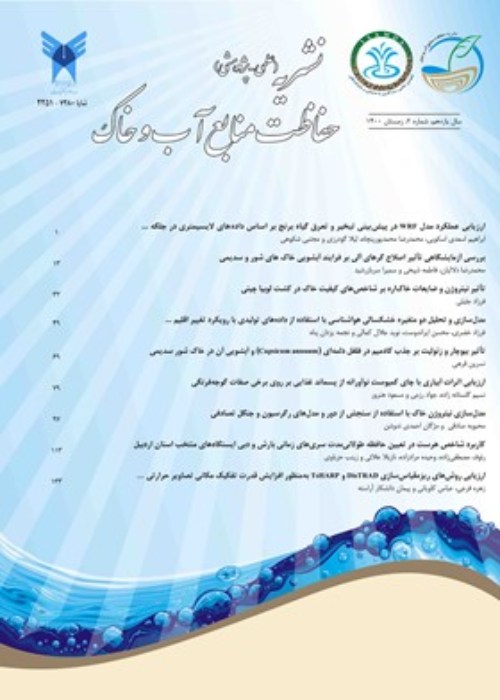Zinc foliar application on alleviating effects of irrigation cut-off in grain filling stage of safflower genotypes (Carthamus tinctorius L.)
Climate change led to increasing the severity of stress, and today’s life of all plants is challenged by rapid environmental changes. Water is an important component in all physiological processes of the should be added, accounting for 80 to 95% of the plant’s biomass. Except in high humidity environments, plants are likely to be exposed to water deficit stress throughout their life cycle. water deficit stress decreases the quantity and quality of the plant product and in addition reduces the water use efficiency as well as reduced the absorption of nutrients. to reduce the effects of water deficit stress on plants, various methods are used, including mineral nutrition with trace elements such as zinc.
to investigate the effects of foliar application of zinc on the morph physiological and biochemical traits of safflower cultivars under drought stress, an experiment was conducted as a should be added split-plot based on of should be deleted randomized complete blocks design with three replicates during 2019-2020. Experimental factors include drought stress as the primary factor, and safflower cultivars and zinc foliar application as secondary factors. The plant’s canopy temperature was determined using an infrared thermometer. Seed oil was extracted from the mature seeds of safflower cultivars by the should be added apparatus using hexane solvent.
Water deficit stress was applied in two levels (regular irrigation (control) and irrigation cut-off when the grain filling stage begins); safflower cultivars in this experiment were Isfahan, Linas, Padideh, Parnian, and Goldasht; foliar application of zinc was in three levels (0, 0.5 and 1 kg. ha-1 Zn). Results showed that water deficit stress decreased stem diameter, head diameter, number of classes per plant, number of seeds per plant, seed yield, biological yield, oil yield, relative leaf water content. Whereas, water deficit stress increased the should be added of the should be added environment. Foliar application of 1 kg. ha-1 Zn improved seed yield, biological yield, oil yield, relative leaf water content.
The results of this study showed that the water deficit stress significantly decreased the growth rate and consequently biological yield, oil yield, and relative water content (RWC) of safflower plants and on the other hand, the application of zinc under optimal irrigation (control) and water deficit stress improved the mentioned traits. Based on the obtained results, it can be stated that the application of zinc can be one of the appropriate solutions to mitigate the effects of water shortage in the grain filling stage of the studied cultivars of safflower.
- حق عضویت دریافتی صرف حمایت از نشریات عضو و نگهداری، تکمیل و توسعه مگیران میشود.
- پرداخت حق اشتراک و دانلود مقالات اجازه بازنشر آن در سایر رسانههای چاپی و دیجیتال را به کاربر نمیدهد.



